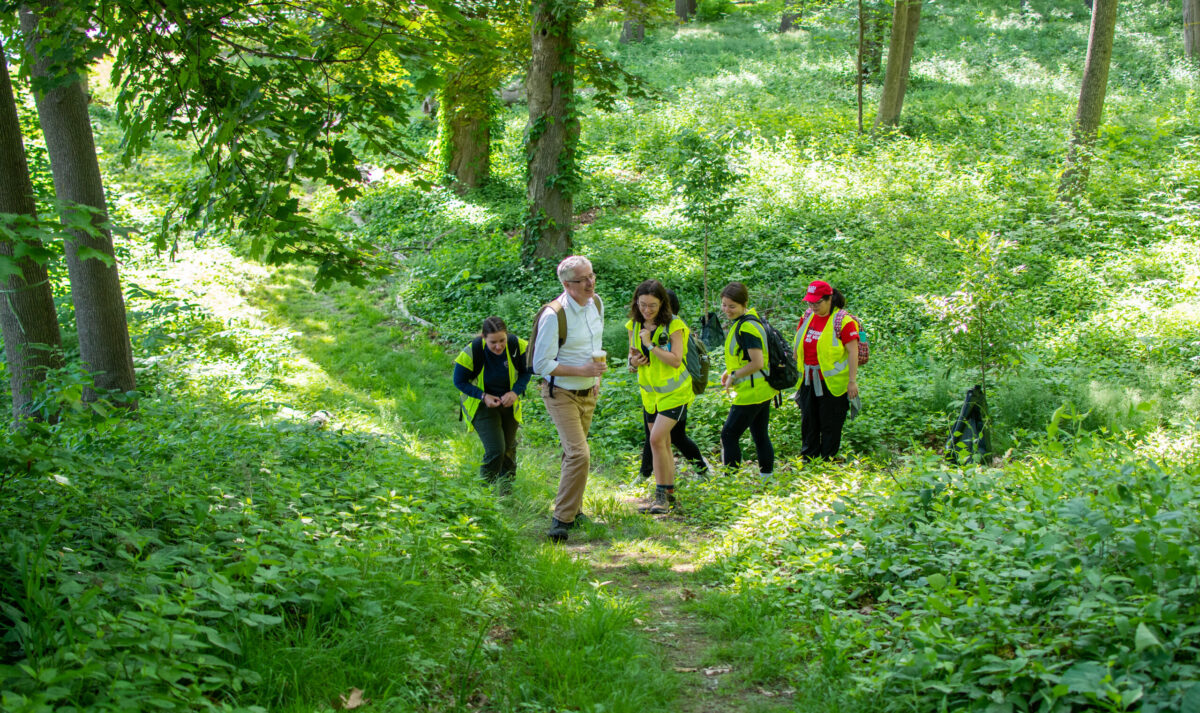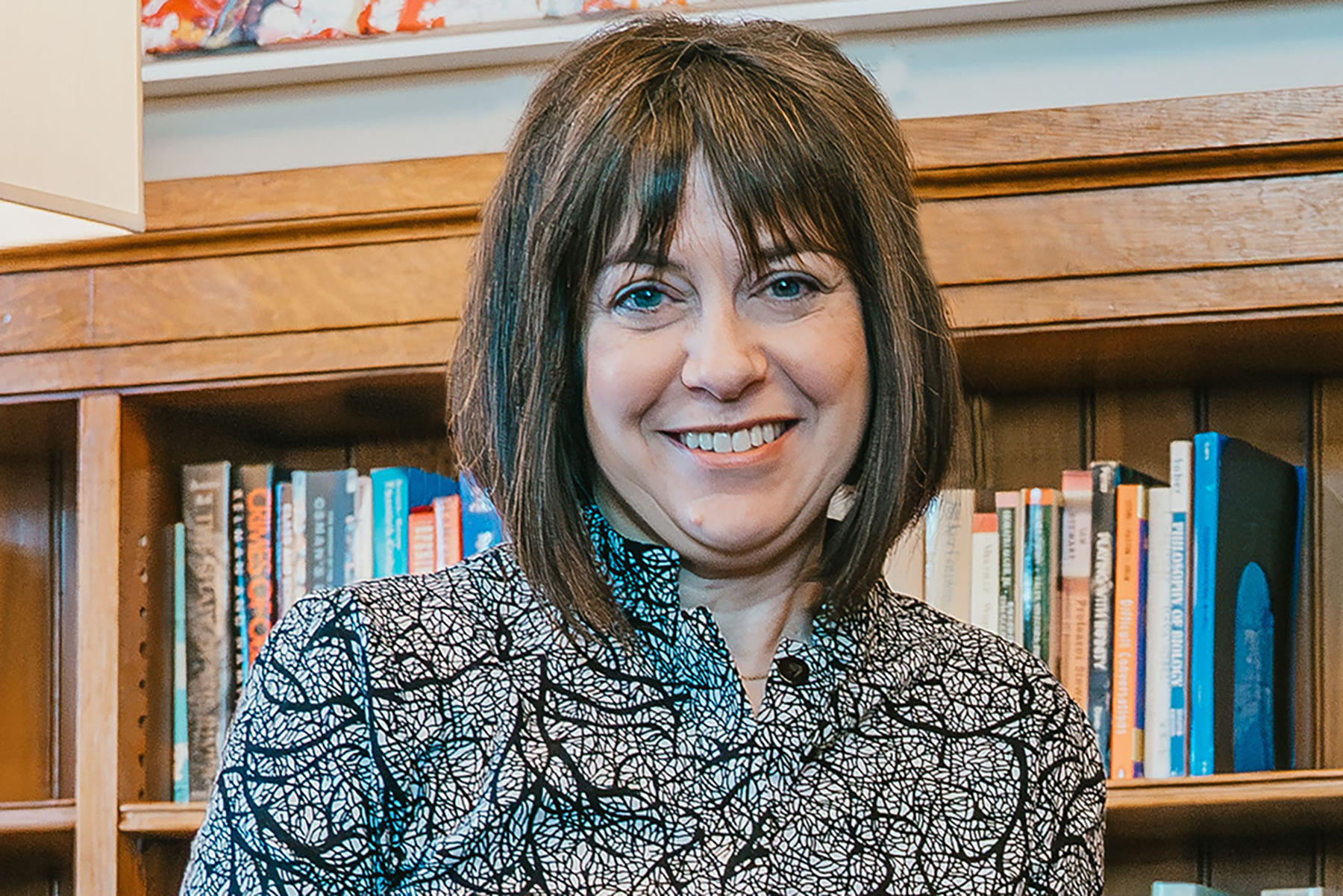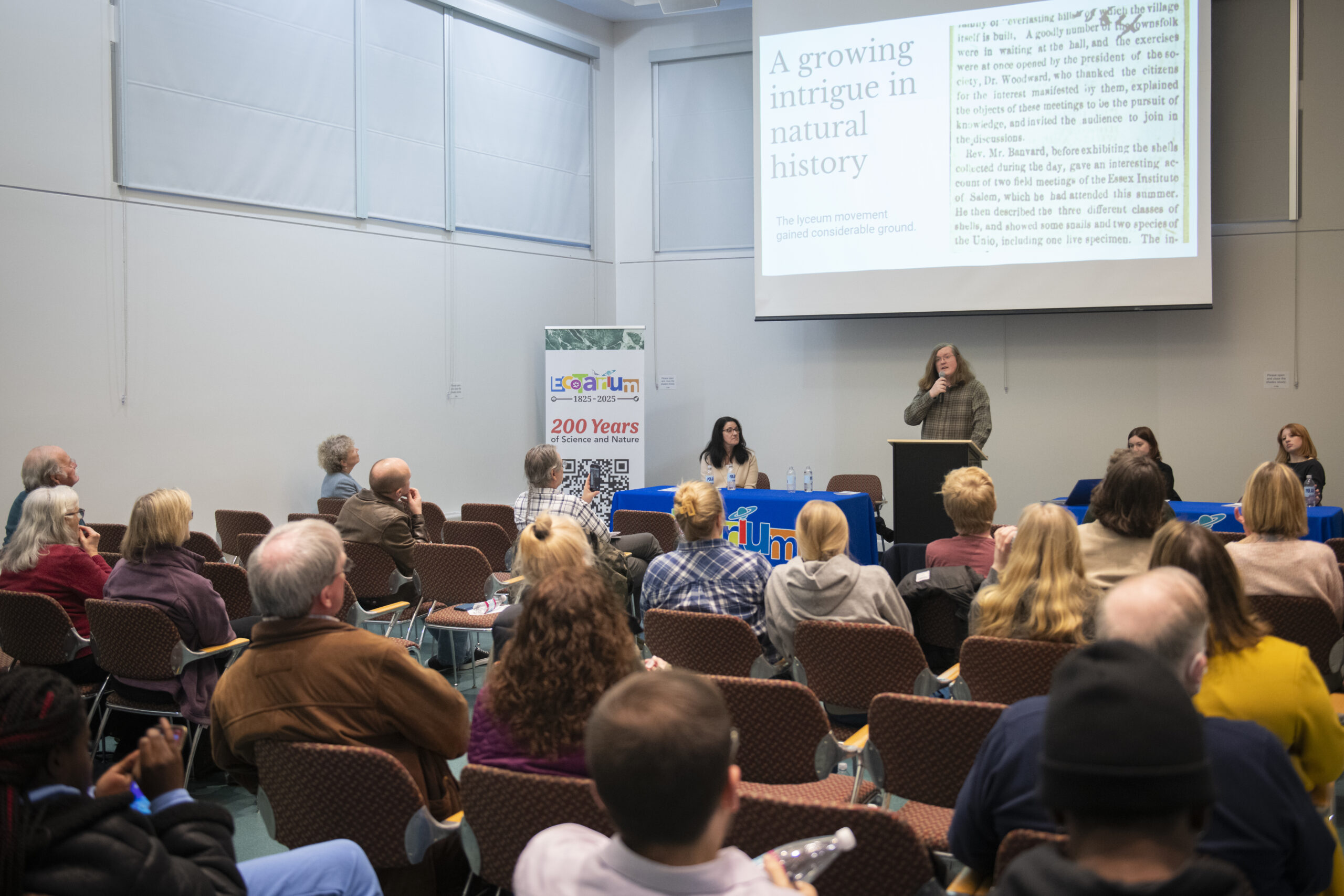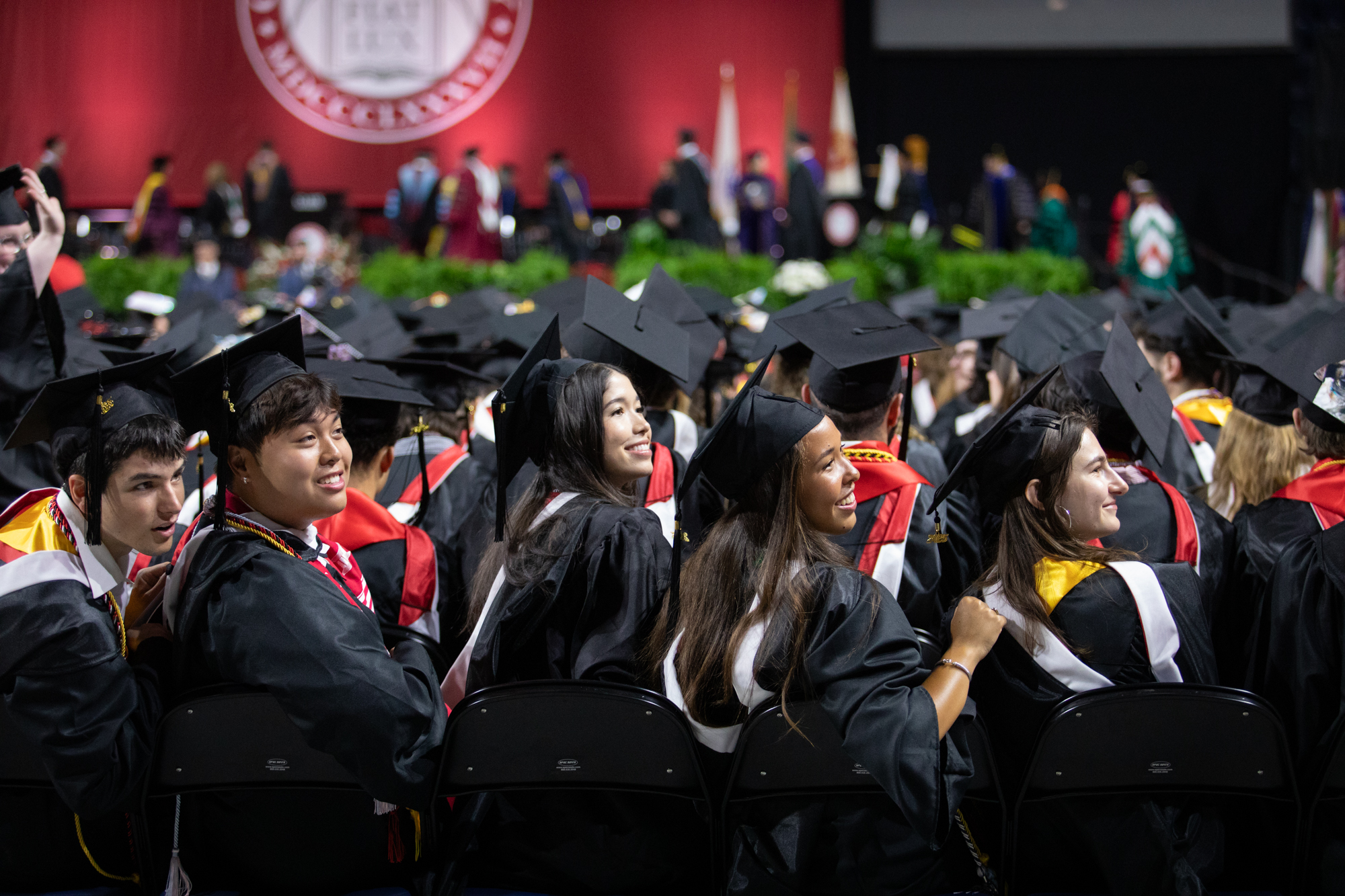HERO fellows study trees outside of Massachusetts for first time
Geography Professor John Rogan gives HERO students a tour of the Hadwen Arboretum.
Shradha Birdika ’24 was searching for colleges online, determined to study geography, when she came across Clark University’s website and discovered the Human-Environment Regional Observatory (HERO) summer research program.
“I was almost mesmerized reading about it,” she says. “It seemed like a once-in-a-lifetime experience — and was one of the major reasons I applied to Clark.”
Birdika is now among five HERO fellows working under the supervision of program co-directors John Rogan and Deborah Martin, professors of geography. HERO research has always centered on tree health with a blend of research, advocacy, and policy. This summer, the program is bringing students outside of Massachusetts for the first time in its 23-year history. HERO is coordinating with Groundwork Rhode Island, a local branch of a national organization that transforms communities at the intersection of environment, equity, and civic engagement.
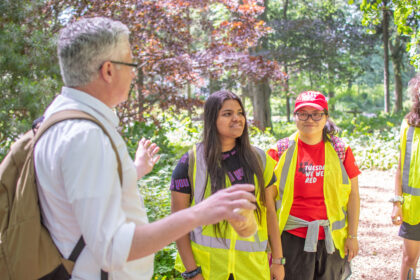
“I love nature, and anything related to geography,” Birdika says. “This program is giving me a taste of what the rest of my life is going to be like.”
Many fellows have their first experience collecting and analyzing data during the eight-week program, which is supported by the John T. O’Connor ’78 Endowed Fund for Environmental Studies. Fellows also engage in social geography activities, such as door-knocking and interviewing residents.
“The model of engagement with stakeholders helps students understand the broader work world beyond research. It’s about the policy, the communities, and how to help people answer questions,” Martin says.
This summer, students are working in Rhode Island — particularly Providence, Central Falls, and Cumberland — studying the health of trees previously planted by Groundwork and looking for areas where more trees can be planted in the future.
“Survivorship and stewardship have risen to the top of what Deb and I think about with this work, as well as air quality and air temperature,” Rogan says. “In places with demonstrated high asthma rates, near industrial areas, with poor air quality, poor soil, and higher temperatures compared to the average of the city, there tend to be pockets where there are very few trees.”
Nick Geron, HERO’s Ph.D. student advisor, says the partnership with Groundwork will mean more trees planted in the fall, helping to reduce air pollution and extreme heat.
“The fellows have been integral in the planning and execution of the research,” Geron says. “They have quickly absorbed both the GIS skills as well as the qualitative method skills necessary to conduct this research.”
HERO Fellow Danielle Hall ’23 has been intrigued by the social geography part of the program. She’s heard from residents who love trees and do whatever they can to keep them around their property. But others have told her trees damaged their sidewalks and drains, and they don’t want any new ones planted near their homes.
“It’s been great to see the physical process of conducting research from start to finish,” Hall says. As a geography major on the GIS track, HERO offered an opportunity to step away from a desktop computer and get her hands dirty. “Working with different people and tools each day has been a lesson in patience and endurance.”
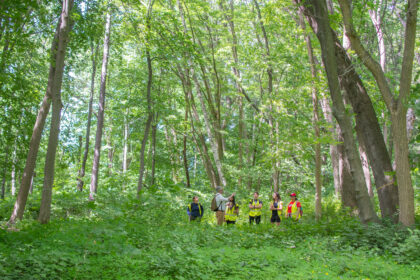
Birdika has also enjoyed interviewing residents about their neighborhoods.
“We often don’t realize how much our backgrounds affect our future decisions, even when it comes to yard care,” Birdika says.
In addition to Rhode Island, fellows have been working in Worcester’s Broad Meadow Brook neighborhood, complementing research by geography Professor Rinku Roy Chowdhury, who received support for the students’ efforts through Clark’s Academic Innovation Fund.
Students are door-knocking to ask residents how they engage with nature in the area.
“This work is very satisfying because we know it’s not going to be in vain,” Birdika says. “The interviews and data we’ve collected are going to be used by the Broad Meadow Brook sanctuary to restore the stream. It feels good that what we’re doing has an impact on society.”
At the end of the program, Birdika, Hall, and their peers will give a presentation on the health of trees planted by Groundwork, where more can be planted, and residents’ top concerns about trees.
“They’re leaving great data sets and knowledge for the group that comes next year,” Rogan says.
Both Birdika and Hall plan to continue the research they started this summer. Hall is considering a project focused on environmental justice and climate change, looking for a correlation between the unequal distribution of pollutants and the prevalence of people with asthma. Birdika may take a social geography approach and interview residents who live near Clark’s Hadwen Arboretum, asking about their experience with the trees and plants on the property.
“You can’t put one label on the HERO program,” Birdika says. “It’s not just about trees. It encapsulates everything a geographer should know.”


